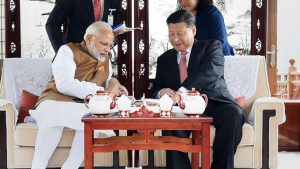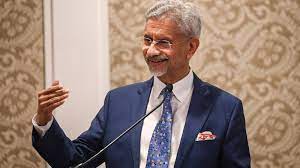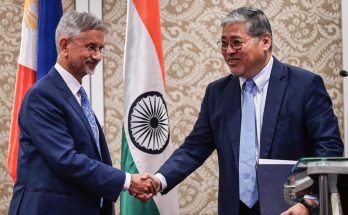 River, rice and a bit of sugar – the positive flow in India-China relations that started in Wuhan washed ashore the Chinese coastal city of Qingdao, with Prime Minister Narendra Modi and Chinese President Xi Jinping jointly renewing their pledge to sustain “a new turning point” in their bilateral relationship.
River, rice and a bit of sugar – the positive flow in India-China relations that started in Wuhan washed ashore the Chinese coastal city of Qingdao, with Prime Minister Narendra Modi and Chinese President Xi Jinping jointly renewing their pledge to sustain “a new turning point” in their bilateral relationship.
New optics & semantics
The change in optics, semantics and content of India-China relations was more than evident in the nearly one-hour long meeting PM Modi and the Chinese leader held in Qingdao on the margins of the SCO summit on June 9 to take the ‘Wuhan Consensus’ forward. The free-flowing conversation during a boat ride together and leisurely stroll in the garden the two leaders had in Wuhan six weeks ago translated into tangible outcomes during their talks in Qingdao, providing “more vigour” to the ongoing transformation in relations between the two Asian powers.
The two agreements on the sharing of hydrological data of Brahmaputra river by China and Beijing’s opening of the market to import of non-basmati rice from India signal enhanced trust and a joint commitment to provide a more pragmatic thrust to the crucial relationship which often gets embroiled in geopolitical quibbles. The brief cessation of sharing of hydrological date of Brahmaputra river by China, following the Doklam stand-off last summer, had rekindled anxieties in India about China’s intentions, and hence the signing of this agreement marks a positive step by China to address India’s concerns. Trust-building is implicit in the signing of the Brahmaputra data-sharing agreement.
Focus on balancing trade
The rice deal offered by China could be a game-changer of sorts in addressing India’s long-standing demand for easing trade deficit, a persistently thorny issue in the bilateral relationship. Besides the rice agreement, the Chinese side’s assurance to open the Chinese market for Indian pharma products suggests that Beijing is willing to go the extra mile to achieve a more balanced economic relationship with New Delhi. Raising the bar, Xi Jinping set a target of $100 billion bilateral trade by 2020, which could become viable only when India’s trade deficit of over $50 billion is significantly reduced in the near term.
P2P: Way to Go
The other key outcomes that flowed from the Modi-Xi meeting signal concretisation of initiatives that were informally discussed by the two leaders in Wuhan. Of these, the most important one is the setting up of a People-to-People mechanism, headed by India’s External Affairs Minister Sushma Swaraj and China’s Foreign Minister and State Councillor Wang Yi. The P2P mechanism is a laudable step and seeks to place people at the heart of this growing relationship.
The Way Ahead: The Wuhan Spirit
 The Qingdao meeting has also charted a roadmap for intensification of interactions at multiple levels in the near term to sustain the momentum in the improving relationship. These include the next meeting on the boundary question between special representatives and the visits by China’s Defence Minister and Public Security Minister to India in the next few months.
The Qingdao meeting has also charted a roadmap for intensification of interactions at multiple levels in the near term to sustain the momentum in the improving relationship. These include the next meeting on the boundary question between special representatives and the visits by China’s Defence Minister and Public Security Minister to India in the next few months.
The Modi-Xi meeting was suffused with what India’s Foreign Secretary Vijay Gokhale has called “the spirit of the Wuhan Summit.”
“It was a meeting of perhaps less than an hour but throughout the meeting there was a very positive forward-looking momentum and it was very evident that the entire meeting was sort of underpinned by the spirit of the Wuhan Summit,” said Mr Gokhale.
Both PM Modi and Xi Jinping have struck a positive note about the improving trajectory of India-China relationship. While Mr Modi described the Wuhan summit as “a milestone,” the Chinese leader called it “a turning point in our bilateral relationship.”
Looking ahead, sustaining the flow and momentum in India-China relations will hinge on swift and sincere implementation of initiatives and doables discussed in Wuhan and firmed up in Qingdao, till the two leaders meet again in South Africa on the margins of the BRICS summit in July.
Author Profile

- Manish Chand is Founder-CEO and Editor-in-Chief of India Writes Network (www.indiawrites.org) and India and World, a pioneering magazine focused on international affairs. He is CEO/Director of TGII Media Private Limited, an India-based media, publishing, research and consultancy company.
Latest entries
 India and the WorldMarch 3, 2024India-Denmark Connect: Red carpet for Indians to Red Sea cooperation
India and the WorldMarch 3, 2024India-Denmark Connect: Red carpet for Indians to Red Sea cooperation India and the WorldFebruary 17, 2024Munich Security Conference: Jaishankar, Blinken focus on Red Sea, Middle East
India and the WorldFebruary 17, 2024Munich Security Conference: Jaishankar, Blinken focus on Red Sea, Middle East India and the WorldFebruary 14, 2024Munich Security Conference report: Migration, war top security threats
India and the WorldFebruary 14, 2024Munich Security Conference report: Migration, war top security threats India and the WorldJanuary 23, 2024With “Ram to Rashtra” mantra, Modi consecrates Ram temple for national renewal
India and the WorldJanuary 23, 2024With “Ram to Rashtra” mantra, Modi consecrates Ram temple for national renewal







